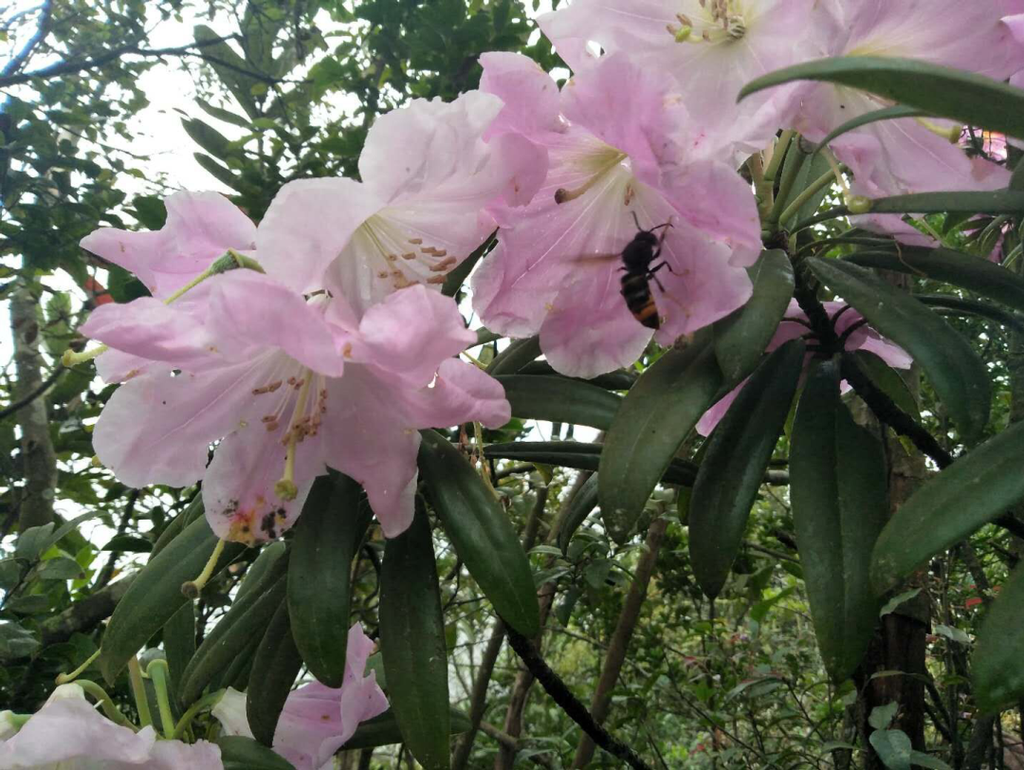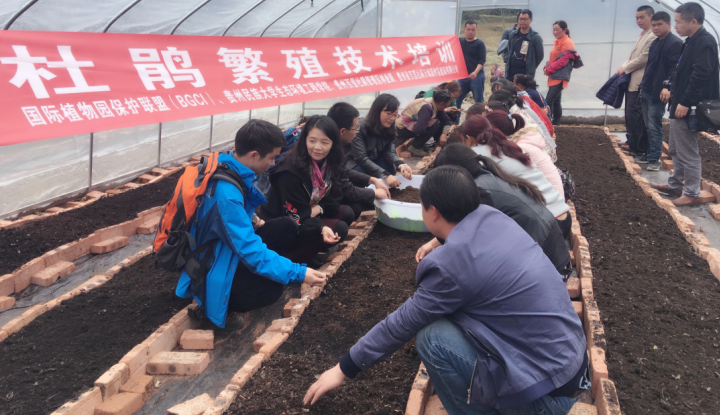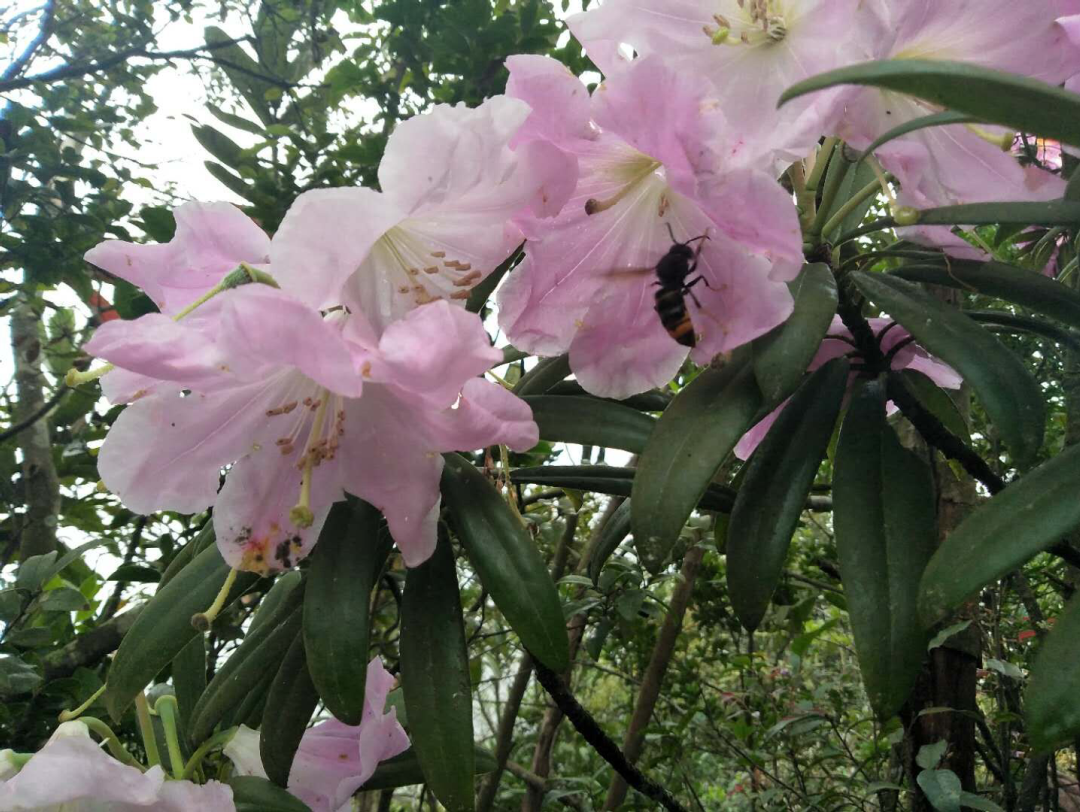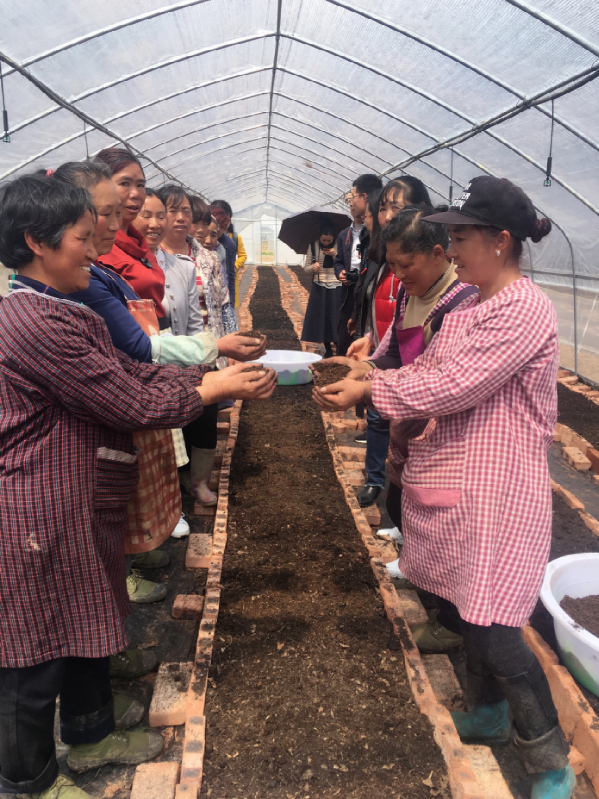Saving a mountain Rhododendron in Southern China

-
Status of project
Completed -
Region
Asia -
Country
China -
Programme
Global Trees Campaign -
Workstream
Saving Plants -
Topic
Tree Conservation
Project completed
Conservation problem
The Critically Endangered Rhododendron liboense is only known from Donghua Karst Mountains of southern China, where destruction of its forest home and low levels of natural regeneration are threatening its survival.
Project goal
This project is working to grow Rhododendron liboense in living collections, supplement populations in the wild and to improve germination success.

Why this species?
Endemic to the Donghua Karst Mountains of southern China, R. liboense was originally documented from a single location with approximately 15 mature individuals. It grows on the mountain clifftops alongside bamboos and has striking pink flowers
R. liboense has extremely small seeds that are easily picked up by wind and blown to sites where conditions are not suitable for it to grow. This has resulted in the species having very low levels of natural regeneration. This has caused, alongside forest clearance for firewood, the species to become Critically Endangered. R. liboense is not known to be in cultivation and is therefore at great risk of being lost forever.

What are we doing?
Along with the College of Humanities and Science, Guizhou Minzu University and other local Chinese partners, we are working to grow R. liboense in living collections which will act as safety net for the species and can be used as a source of material to reinforce wild populations. Survey work is being carried out to gain a better understanding of the distribution of remaining stands of R. liboense. Lastly, research is underway to improve germination success of the species.
The main activities of this project include:
- Surveying the suspected species range to identify status of the species in the wild.
- Conducting research to improve germination success.
- Growing a large number of saplings, which will be used to establish living collections at partner institutions and to supplement wild populations.
- Training local villagers,forestry department and commercial plant nursery staff how to grow the species.
Key achievements
Expeditions into the Donghua Karst Mountains have discovered two new populations of R. liboense, bringing the total number of known mature individuals in the wild to 55. 300 seedlings have been successfully propagated with a survival rate of approximately 74%. Seed has been collected from the different populations but they appear to have very different viability levels. Further work will be undertaken to understand reasons for differences in seed quality. A training course on how to grow the species was attended by 40 villagers, staff from the local forestry department and commercial plant nursery. Women from local villages were particularly interested in growing R. liboense in their home gardens in the future.

Contact details
For more information on this project, please contact globaltrees@bgci.org